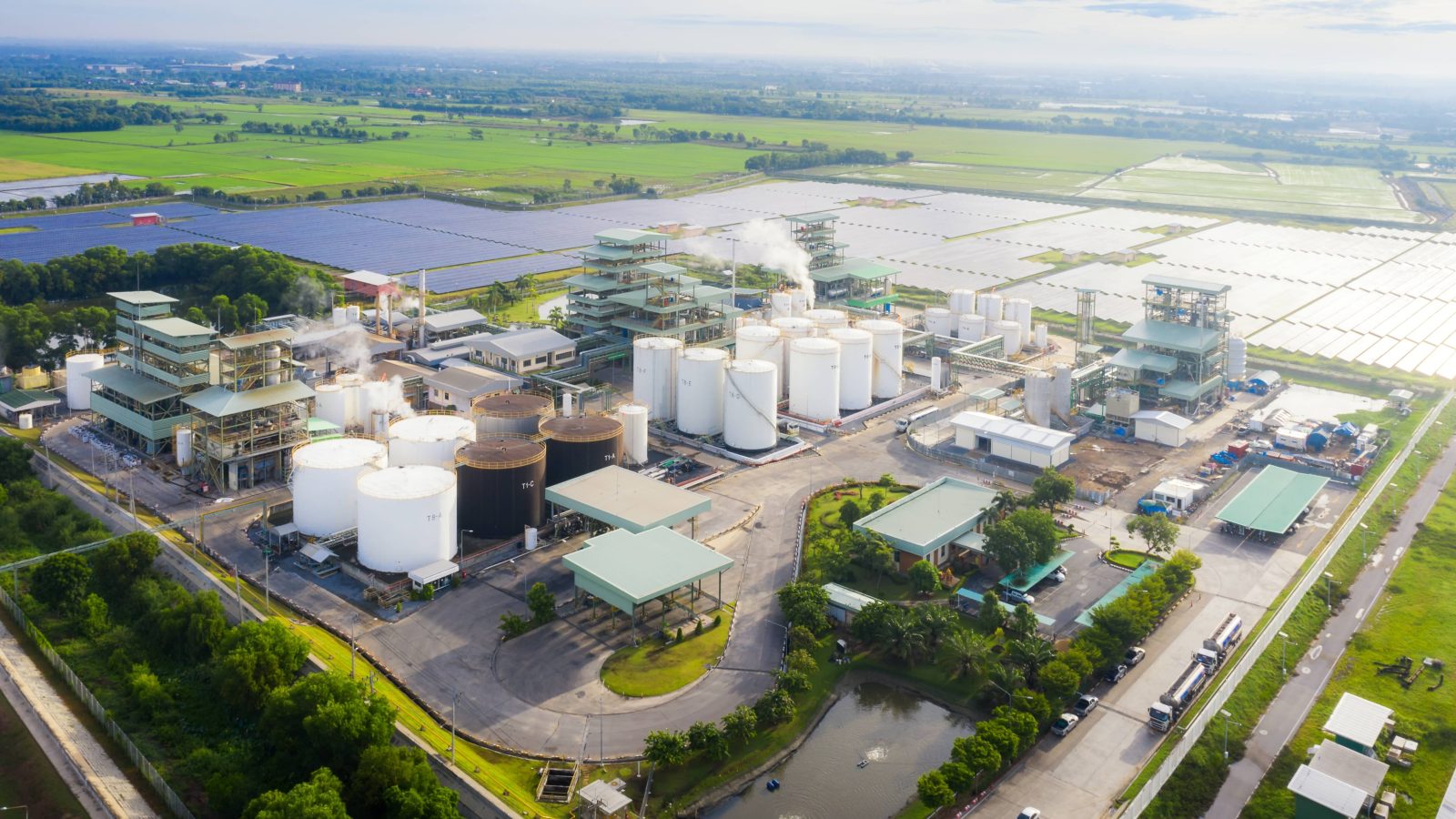Everyone knows that the fossil fuel industry drives global warming. A new report shows that the chemical industry contributes to the climate crisis, too. But the conversation about solutions to climate change has largely omitted the role that chemicals and petrochemicals play in exacerbating the crisis, and the report says policymakers should start thinking about ways to green the industry.
The chemical sector doesn’t just make products like inks, solvents, glues, and soaps. It also makes products out of oil and gas like plastics, fertilizer, and synthetic rubber. The chemical industry often relies on fossil fuels to power its factories and make its products. And some of these chemicals, like refrigerants, are potent greenhouse gases themselves. All of those emissions add up.
The report, published by the nonprofit Center for Progressive Reform with input from other environmental nonprofits, shows the chemical industry is responsible for 7 percent of total global greenhouse gas emissions — some 3.3 gigatons of greenhouse has emissions a year. That’s orders of magnitude less than the 89 percent of global carbon emissions that the fossil fuel industry produces, but it’s still a significant contribution, especially considering the fact that world governments are scrambling to slash emissions wherever possible as climate change accelerates and the window to take action grows narrower. Yet chemicals, the report said, “continue to be overlooked in efforts to mitigate climate change.”
Emissions from the chemical industry are on the rise. In the U.S. alone, emissions from this sector increased 43 percent between 1990 and 2019 to meet growing demand. By the end of this decade, petrochemicals — chemicals derived from oil and gas — could account for more than a third of growth in oil demand, more than the freight, aviation, and shipping industries. In short, if governments don’t intervene, the chemical industry could become an increasingly serious obstacle to global efforts to decrease emissions.
In addition to the role chemicals and petrochemicals could play in exacerbating global warming, the industry also poses a risk to the communities in which it operates — areas the report shows are often inhabited by people of color and low-income residents. Some of these communities are already experiencing chemical disasters due to extreme weather fueled by warming temperatures, and more neighborhoods could experience such disasters as extreme weather continues to plague the United States and other countries. An analysis of the industrial facilities regulated under the federal Risk Management Program, which use, manage, or store hazardous chemicals, showed a third of these facilities in the U.S. — nearly 4,000 buildings — are at risk of being impacted by wildfires, flooding, hurricane storm surge, or coastal flooding.
So what can legislators do to better protect residents from hazardous substances and prevent the chemical industry from tanking the planet? The report recommends that the Environmental Protection Agency put more stringent measures in place requiring chemical manufacturing facilities to become more energy efficient. Chemical and petrochemical companies could transition their factories and facilities to renewable energy, which would reduce emissions from at least one facet of their operations. Legislators could also continue to pass laws outlawing single use plastics, which help reduce demand for oil-based products. And they could pass more laws that phase out chemicals that produce greenhouse gases like hydrofluorocarbons, which are used in refrigeration. Lastly, the EPA could conduct risk assessments of neighborhoods and communities that are home to hazardous chemical facilities and require those facilities to plan for extreme weather disasters.
“We can’t solve the climate crisis without significantly reducing and replacing fossil fuels throughout the chemical industry,” Darya Minovi, policy analyst at the Center for Progressive Reform, said in a press release. “The chemical industry must do its part to stop our global temperatures from rising to the point of no return.”



